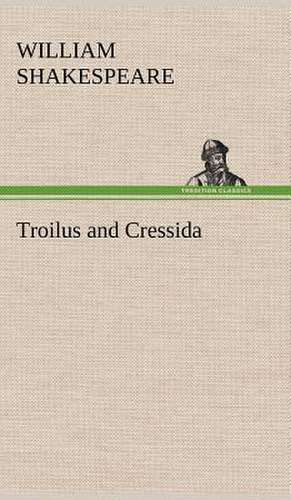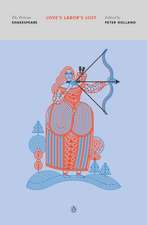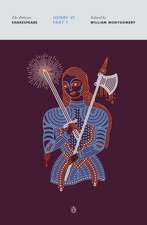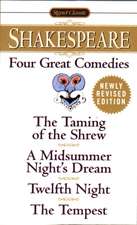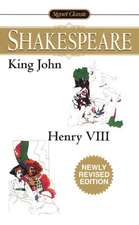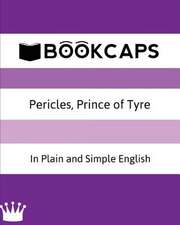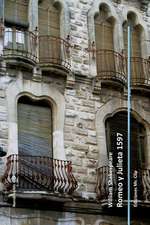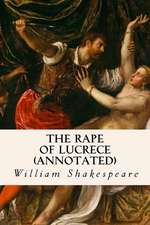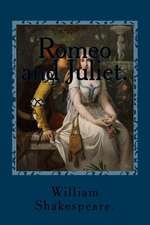Troilus and Cressida
Autor William Shakespeareen Limba Engleză Hardback – 30 noi 2012
Troilus and Cressida is perhaps Shakespeare's most philosophical play, and its preoccupation with war, sex, and time has seemed peculiarly relevant since the First World War. Fine productions have demonstrated the play's theatrical power, and critics have explored and illuminated its ideas and its exceptionally complex language. Kenneth Muir, in his introduction, sets the play in its historical context, discusses its odd career in the theatre, examines Shakespeare's handling of his multiple sources, and assesses the contribution of interpretative criticism to a deeper understanding of this sombre examination of a fallen world. ABOUT THE SERIES: For over 100 years Oxford World's Classics has made available the widest range of literature from around the globe. Each affordable volume reflects Oxford's commitment to scholarship, providing the most accurate text plus a wealth of other valuable features, including expert introductions by leading authorities, helpful notes to clarify the text, up-to-date bibliographies for further study, and much more.
Preț: 256.82 lei
Nou
Puncte Express: 385
Preț estimativ în valută:
49.15€ • 51.12$ • 40.58£
49.15€ • 51.12$ • 40.58£
Carte tipărită la comandă
Livrare economică 14-28 aprilie
Preluare comenzi: 021 569.72.76
Specificații
ISBN-13: 9783849178710
ISBN-10: 3849178714
Pagini: 148
Dimensiuni: 127 x 203 x 10 mm
Greutate: 0.27 kg
Editura: TREDITION CLASSICS
ISBN-10: 3849178714
Pagini: 148
Dimensiuni: 127 x 203 x 10 mm
Greutate: 0.27 kg
Editura: TREDITION CLASSICS
Descriere scurtă
Recenzii
Review of previous edition: '… [an] excellent companion to this delinquent genius of a play.' Quarto
Review of previous edition: '… [a] fine new edition … Anthony B. Dawson's readable and reliable text, together with his excellent explanatory footnotes and his superb discussion of theatrical adaptations of the play, will make this edition a valuable resource for scholars as well as an attractive text for classroom use.' Shakespeare Quarterly
Review of previous edition: 'I commend this new edition particularly for the introductory sections.' Shakespeare at the Centre Magazine
Review of previous edition: '… excellent …' Around the Globe
Review of the series: 'I cannot recommend too highly the whole series to all theatre lovers, theatregoers, theatre practitioners, and anybody who enjoys Shakespeare.' Robert Tanitch, What's on in London
Review of previous edition: '… [a] fine new edition … Anthony B. Dawson's readable and reliable text, together with his excellent explanatory footnotes and his superb discussion of theatrical adaptations of the play, will make this edition a valuable resource for scholars as well as an attractive text for classroom use.' Shakespeare Quarterly
Review of previous edition: 'I commend this new edition particularly for the introductory sections.' Shakespeare at the Centre Magazine
Review of previous edition: '… excellent …' Around the Globe
Review of the series: 'I cannot recommend too highly the whole series to all theatre lovers, theatregoers, theatre practitioners, and anybody who enjoys Shakespeare.' Robert Tanitch, What's on in London
Notă biografică
Venus and Adonis is a narrative poem by William Shakespeare published in 1593. It is probably Shakespeare's first publication.The poem tells the story of Venus, the goddess of Love of her unrequited love and of her attempted seduction of Adonis, an extremely handsome young man, who would rather go hunting. The poem is pastoral, and at times erotic, comic, and tragic. It contains discourses on the nature of love, and observations of nature.It is written in stanzas of six lines of iambic pentameter rhyming ABABCC although this verse form was known before Shakespeare's use, it is now commonly known as the Venus and Adonis stanza, after this poem. This form was also used by Edmund Spenser and Thomas Lodge. The poem consists of 199 stanzas or 1,194 lines.It was published originally as a quarto pamphlet and published with great care. It was probably printed using Shakespeare's fair copy. The printer was Richard Field, who, like Shakespeare, was from Stratford. Venus and Adonis appeared in print before any of Shakespeare's plays were published, but not before some of his plays had been acted on stage. It has certain qualities in common with A Midsummer Night's Dream, Romeo and Juliet, and Love's Labour's Lost. It was written when the London theatres were closed for a time due to the plague.The poem begins with a brief dedication to Shakespeare's patron, Henry Wriothesley, 3rd Earl of Southampton, in which the poet describes the poem as "the first heir of my invention".The poem is inspired by and based on stories found in the Metamorphoses, a narrative poem by the Latin poet, Ovid (43 BC - AD 17/18). Ovid's much briefer version of the tale occurs in book ten of his Metamorphoses. It differs greatly from Shakespeare's version. Ovid's Venus goes hunting with Adonis to please him, but otherwise is uninterested in the out-of-doors. She wears "tucked up" robes, worries about her complexion, and particularly hates dangerous wild animals. Shakespeare's Venus is a bit like a wild animal herself: she apparently goes naked, and is not interested in hunting, but only in making love to Adonis, offering her body to him in graphically explicit terms. In the end, she insists that the boar's killing of Adonis happened accidentally as the animal, impressed by the young hunter's beauty, gored him while trying to kiss him.
Cuprins
List of illustrations; Acknowledgements; List of abbreviations and conventions; Introduction: style and genre: heap of rubbish, salty comedy, or what?; The play in its time; Symmetrical structures; Interpreting the language; Cressida; Literary identity; Scepticism and speculation; The play in performance: the play in 2015 with Gretchen Minton; Staging the staging; Note on the text; The 1609 epistle to the reader; List of characters; The play; Textual analysis; Appendix: sources of the play; Reading list.
Extras
The Prologue
[Enter the Prologue, in armour]
In Troy there lies the scene. From isles of Greece
The princes orgulous, their high blood chafed,
Have to the port of Athens sent their ships
Fraught with the ministers and instruments
Of cruel war: sixty and nine, that wore
Their crownets regal, from th'Athenian bay
Put forth toward Phrygia, and their vow is made
To ransack Troy, within whose strong immures
The ravished Helen, Menelaus' queen,
With wanton Paris sleeps, and that's the quarrel.
To Tenedos they come,
And the deep-drawing barks do there disgorge
Their warlike fraughtage: now on Dardan plains
The fresh and yet unbruisèd Greeks do pitch
Their brave pavilions: Priam's six-gated city,
Dardan, and Tymbria, Helias, Chetas, Troien,
And Antenorides, with massy staples
And corresponsive and fulfilling bolts,
Stir up the sons of Troy.
Now expectation, tickling skittish spirits,
On one and other side, Trojan and Greek,
Sets all on hazard. And hither am I come,
A prologue armed, but not in confidence
Of author's pen or actor's voice, but suited
In like conditions as our argument,
To tell you, fair beholders, that our play
Leaps o'er the vaunt and firstlings of those broils,
Beginning in the middle, starting thence away
To what may be digested in a play.
Like or find fault, do as your pleasures are:
Now good or bad, 'tis but the chance of war. [Exit]
Act 1 Scene 1 running scene 1
Enter Pandarus and Troilus
TROILUS Call here my varlet, I'll unarm again:
Why should I war without the walls of Troy
That find such cruel battle here within?
Each Trojan that is master of his heart,
Let him to field: Troilus, alas, hath none.
PANDARUS Will this gear ne'er be mended?
TROILUS The Greeks are strong and skilful to their strength,
Fierce to their skill and to their fierceness valiant,
But I am weaker than a woman's tear,
Tamer than sleep, fonder than ignorance,
Less valiant than the virgin in the night,
And skilless as unpractised infancy.
PANDARUS Well, I have told you enough of this: for my part, I'll not meddle nor make no further. He that will have a cake out of the wheat must needs tarry the grinding.
TROILUS Have I not tarried?
PANDARUS Ay, the grinding, but you must tarry the bolting.
TROILUS Have I not tarried?
PANDARUS Ay, the bolting, but you must tarry the leav'ning.
TROILUS Still have I tarried.
PANDARUS Ay, to the leavening, but here's yet in the word 'hereafter' the kneading, the making of the cake, the heating of the oven and the baking; nay, you must stay the cooling too, or you may chance to burn your lips.
TROILUS Patience herself, what goddess e'er she be,
Doth lesser blench at suff'rance than I do.
At Priam's royal table do I sit;
And when fair Cressid comes into my thoughts -
So, traitor, when she comes? When is she thence?
PANDARUS Well, she looked yesternight fairer than ever I saw her look, or any woman else.
TROILUS I was about to tell thee - when my heart,
As wedgèd with a sigh, would rive in twain,
Lest Hector or my father should perceive me -
I have, as when the sun doth light a-scorn,
Buried this sigh in wrinkle of a smile:
But sorrow, that is couched in seeming gladness
Is like that mirth fate turns to sudden sadness.
PANDARUS An her hair were not somewhat darker than Helen's - well, go to - there were no more comparison between the women. But, for my part, she is my kinswoman: I would not, as they term it, praise her, but I would somebody had heard her talk yesterday, as I did. I will not dispraise your sister Cassandra's wit, but-
TROILUS O Pandarus! I tell thee, Pandarus -
When I do tell thee, there my hopes lie drowned,
Reply not in how many fathoms deep
They lie indrenched. I tell thee I am mad
In Cressid's love. Thou answer'st she is fair,
Pour'st in the open ulcer of my heart
Her eyes, her hair, her cheek, her gait, her voice,
Handlest in thy discourse, O, that her hand
In whose comparison all whites are ink
Writing their own reproach, to whose soft seizure
The cygnet's down is harsh and spirit of sense
Hard as the palm of ploughman: this thou tell'st me -
As true thou tell'st me - when I say I love her,
But, saying thus, instead of oil and balm,
Thou lay'st in every gash that love hath given me
The knife that made it.
PANDARUS I speak no more than truth.
TROILUS Thou dost not speak so much.
PANDARUS Faith, I'll not meddle in't. Let her be as she is: if she be fair, 'tis the better for her: an she be not, she has the mends in her own hands.
TROILUS Good Pandarus, how now, Pandarus?
PANDARUS I have had my labour for my travail: ill-thought on of her and ill-thought on of you: gone between and between, but small thanks for my labour.
TROILUS What, art thou angry, Pandarus? What, with me?
PANDARUS Because she's kin to me, therefore she's not so fair as Helen: an she were not kin to me, she would be as fair on Friday as Helen is on Sunday. But what care I? I care not an she were a blackamoor: 'tis all one to me.
TROILUS Say I she is not fair?
PANDARUS I do not care whether you do or no. She's a fool to stay behind her father: let her to the Greeks, and so I'll tell her the next time I see her. For my part, I'll meddle nor make no more i'th'matter.
TROILUS Pandarus-
PANDARUS Not I.
TROILUS Sweet Pandarus-
PANDARUS Pray you speak no more to me: I will leave all as I found it, and there an end. Exit Pandarus
Sound alarum
TROILUS Peace, you ungracious clamours, peace, rude sounds!
Fools on both sides! Helen must needs be fair
When with your blood you daily paint her thus.
I cannot fight upon this argument:
It is too starved a subject for my sword.
But Pandarus - O gods, how do you plague me!
I cannot come to Cressid but by Pandar,
And he's as tetchy to be wooed to woo
As she is stubborn, chaste, against all suit.
Tell me, Apollo, for thy Daphne's love,
What Cressid is, what Pandar, and what we?
Her bed is India: there she lies, a pearl.
Between our Ilium and where she resides,
Let it be called the wild and wand'ring flood,
Ourself the merchant, and this sailing Pandar
Our doubtful hope, our convoy and our bark.
Alarum. Enter Aeneas
AENEAS How now, Prince Troilus? Wherefore not afield?
TROILUS Because not there: this woman's answer sorts,
For womanish it is to be from thence.
What news, Aeneas, from the field today?
AENEAS That Paris is returnèd home and hurt.
TROILUS By whom, Aeneas?
AENEAS Troilus, by Menelaus.
TROILUS Let Paris bleed, 'tis but a scar to scorn:
Paris is gored with Menelaus' horn. Alarum
AENEAS Hark, what good sport is out of town today!
TROILUS Better at home, if 'would I might' were 'may'.
But to the sport abroad: are you bound thither?
AENEAS In all swift haste.
TROILUS Come, go we then together. Exeunt
[Act 1 Scene 2] running scene 2
Enter Cressida and her Man [Alexander]
CRESSIDA Who were those went by?
ALEXANDER Queen Hecuba and Helen.
CRESSIDA And whither go they?
ALEXANDER Up to the eastern tower,
Whose height commands as subject all the vale,
To see the battle. Hector, whose patience
Is as a virtue fixed, today was moved:
He chides Andromache and struck his armourer,
And, like as there were husbandry in war,
Before the sun rose he was harnessed light,
And to the field goes he, where every flower
Did as a prophet weep what it foresaw
In Hector's wrath.
CRESSIDA What was his cause of anger?
ALEXANDER The noise goes, this: there is among the Greeks
A lord of Trojan blood, nephew to Hector:
They call him Ajax.
CRESSIDA Good, and what of him?
ALEXANDER They say he is a very man per se, and stands alone.
CRESSIDA So do all men, unless they are drunk, sick, or have no legs.
ALEXANDER This man, lady, hath robbed many beasts of their particular additions: he is as valiant as the lion, churlish as the bear, slow as the elephant: a man into whom nature hath so crowded humours that his valour is crushed into folly, his folly sauced with discretion. There is no man hath a virtue that he hath not a glimpse of, nor any man an attaint but he carries some stain of it: he is melancholy without cause, and merry against the hair: he hath the joints of everything, but everything so out of joint that he is a gouty Briareus, many hands and no use, or purblinded Argus, all eyes and no sight.
CRESSIDA But how should this man, that makes me smile make Hector angry?
ALEXANDER They say he yesterday coped Hector in the battle and struck him down, the disdain and shame whereof hath ever since kept Hector fasting and waking.
Enter Pandarus
CRESSIDA Who comes here?
ALEXANDER Madam, your uncle Pandarus.
CRESSIDA Hector's a gallant man.
ALEXANDER As may be in the world, lady.
PANDARUS What's that? What's that?
CRESSIDA Good morrow, uncle Pandarus.
PANDARUS Good morrow, cousin Cressid. What do you talk of?- Good morrow, Alexander.- How do you, cousin? When were you at Ilium?
CRESSIDA This morning, uncle.
PANDARUS What were you talking of when I came? Was Hector armed and gone ere ye came to Ilium? Helen was not up, was she?
CRESSIDA Hector was gone, but Helen was not up.
PANDARUS E'en so; Hector was stirring early.
CRESSIDA That were we talking of, and of his anger.
PANDARUS Was he angry?
CRESSIDA So he says here.
PANDARUS True, he was so; I know the cause too: he'll lay about him today, I can tell them that, and there's Troilus will not come far behind him: let them take heed of Troilus, I can tell them that too.
CRESSIDA What, is he angry too?
PANDARUS Who, Troilus? Troilus is the better man of the two.
CRESSIDA O Jupiter, there's no comparison.
PANDARUS What, not between Troilus and Hector? Do you know a man if you see him?
CRESSIDA Ay, if I ever saw him before and knew him.
PANDARUS Well, I say Troilus is Troilus.
CRESSIDA Then you say as I say, for I am sure he is not Hector.
PANDARUS No, nor Hector is not Troilus in some degrees.
CRESSIDA 'Tis just to each of them: he is himself.
PANDARUS Himself? Alas, poor Troilus, I would he were.
CRESSIDA So he is.
PANDARUS Condition, I had gone barefoot to India.
CRESSIDA He is not Hector.
PANDARUS Himself? No, he's not himself: would a were himself! Well, the gods are above, time must friend or end. Well, Troilus, well. I would my heart were in her body. No, Hector is not a better man than Troilus.
CRESSIDA Excuse me.
PANDARUS He is elder.
CRESSIDA Pardon me, pardon me.
PANDARUS Th'other's not come to't; you shall tell me another tale, when th'other's come to't. Hector shall not have his wit this year.
CRESSIDA He shall not need it if he have his own.
PANDARUS Nor his qualities.
CRESSIDA No matter.
PANDARUS Nor his beauty.
CRESSIDA 'Twould not become him: his own's better.
PANDARUS You have no judgement, niece; Helen herself swore th'other day that Troilus for a brown favour - for so 'tis, I must confess - not brown neither-
CRESSIDA No, but brown.
PANDARUS 'Faith, to say truth, brown and not brown.
CRESSIDA To say the truth, true and not true.
PANDARUS She praised his complexion above Paris.
CRESSIDA Why, Paris hath colour enough.
PANDARUS So he has.
CRESSIDA Then Troilus should have too much: if she praised him above, his complexion is higher than his: he having colour enough, and the other higher, is too flaming a praise for a good complexion. I had as lief Helen's golden tongue had commended Troilus for a copper nose.
PANDARUS I swear to you, I think Helen loves him better than Paris.
CRESSIDA Then she's a merry Greek indeed.
PANDARUS Nay, I am sure she does. She came to him th'other day into the compassed window - and, you know, he has not past three or four hairs on his chin-
CRESSIDA Indeed, a tapster's arithmetic may soon bring his particulars therein to a total.
PANDARUS Why, he is very young, and yet will he within three pound lift as much as his brother Hector.
CRESSIDA Is he so young a man and so old a lifter?
PANDARUS But to prove to you that Helen loves him, she came and puts me her white hand to his cloven chin-
CRESSIDA Juno have mercy! How came it cloven?
PANDARUS Why, you know 'tis dimpled. I think his smiling becomes him better than any man in all Phrygia.
CRESSIDA O, he smiles valiantly.
PANDARUS Does he not?
CRESSIDA O yes, an 'twere a cloud in autumn.
PANDARUS Why, go to, then. But to prove to you that Helen loves Troilus-
CRESSIDA Troilus will stand to the proof, if you'll prove it so.
PANDARUS Troilus? Why, he esteems her no more than I esteem an addle egg.
CRESSIDA If you love an addle egg as well as you love an idle head, you would eat chickens i'th'shell.
PANDARUS I cannot choose but laugh to think how she tickled his chin. Indeed, she has a marvellous white hand, I must needs confess-
CRESSIDA Without the rack.
PANDARUS And she takes upon her to spy a white hair on his chin.
CRESSIDA Alas, poor chin. Many a wart is richer.
PANDARUS But there was such laughing! Queen Hecuba laughed that her eyes ran o'er.
CRESSIDA With millstones.
PANDARUS And Cassandra laughed.
CRESSIDA But there was more temperate fire under the pot of her eyes: did her eyes run o'er too?
PANDARUS And Hector laughed.
CRESSIDA At what was all this laughing?
PANDARUS Marry, at the white hair that Helen spied on Troilus' chin.
CRESSIDA An't had been a green hair, I should have laughed too.
PANDARUS They laughed not so much at the hair as at his pretty answer.
CRESSIDA What was his answer?
PANDARUS Quoth she, 'Here's but two and fifty hairs on your chin, and one of them is white.'
CRESSIDA This is her question.
PANDARUS That's true, make no question of that. 'Two and fifty hairs,' quoth he, 'and one white: that white hair is my father, and all the rest are his sons.' 'Jupiter!' quoth she, 'Which of these hairs is Paris, my husband?' 'The forked one,' quoth he, 'pluck't out, and give it him.' But there was such laughing, and Helen so blushed, and Paris so chafed, and all the rest so laughed, that it passed.
CRESSIDA So let it now, for it has been a great while going by.
PANDARUS Well, cousin. I told you a thing yesterday: think on't.
CRESSIDA So I do.
[Enter the Prologue, in armour]
In Troy there lies the scene. From isles of Greece
The princes orgulous, their high blood chafed,
Have to the port of Athens sent their ships
Fraught with the ministers and instruments
Of cruel war: sixty and nine, that wore
Their crownets regal, from th'Athenian bay
Put forth toward Phrygia, and their vow is made
To ransack Troy, within whose strong immures
The ravished Helen, Menelaus' queen,
With wanton Paris sleeps, and that's the quarrel.
To Tenedos they come,
And the deep-drawing barks do there disgorge
Their warlike fraughtage: now on Dardan plains
The fresh and yet unbruisèd Greeks do pitch
Their brave pavilions: Priam's six-gated city,
Dardan, and Tymbria, Helias, Chetas, Troien,
And Antenorides, with massy staples
And corresponsive and fulfilling bolts,
Stir up the sons of Troy.
Now expectation, tickling skittish spirits,
On one and other side, Trojan and Greek,
Sets all on hazard. And hither am I come,
A prologue armed, but not in confidence
Of author's pen or actor's voice, but suited
In like conditions as our argument,
To tell you, fair beholders, that our play
Leaps o'er the vaunt and firstlings of those broils,
Beginning in the middle, starting thence away
To what may be digested in a play.
Like or find fault, do as your pleasures are:
Now good or bad, 'tis but the chance of war. [Exit]
Act 1 Scene 1 running scene 1
Enter Pandarus and Troilus
TROILUS Call here my varlet, I'll unarm again:
Why should I war without the walls of Troy
That find such cruel battle here within?
Each Trojan that is master of his heart,
Let him to field: Troilus, alas, hath none.
PANDARUS Will this gear ne'er be mended?
TROILUS The Greeks are strong and skilful to their strength,
Fierce to their skill and to their fierceness valiant,
But I am weaker than a woman's tear,
Tamer than sleep, fonder than ignorance,
Less valiant than the virgin in the night,
And skilless as unpractised infancy.
PANDARUS Well, I have told you enough of this: for my part, I'll not meddle nor make no further. He that will have a cake out of the wheat must needs tarry the grinding.
TROILUS Have I not tarried?
PANDARUS Ay, the grinding, but you must tarry the bolting.
TROILUS Have I not tarried?
PANDARUS Ay, the bolting, but you must tarry the leav'ning.
TROILUS Still have I tarried.
PANDARUS Ay, to the leavening, but here's yet in the word 'hereafter' the kneading, the making of the cake, the heating of the oven and the baking; nay, you must stay the cooling too, or you may chance to burn your lips.
TROILUS Patience herself, what goddess e'er she be,
Doth lesser blench at suff'rance than I do.
At Priam's royal table do I sit;
And when fair Cressid comes into my thoughts -
So, traitor, when she comes? When is she thence?
PANDARUS Well, she looked yesternight fairer than ever I saw her look, or any woman else.
TROILUS I was about to tell thee - when my heart,
As wedgèd with a sigh, would rive in twain,
Lest Hector or my father should perceive me -
I have, as when the sun doth light a-scorn,
Buried this sigh in wrinkle of a smile:
But sorrow, that is couched in seeming gladness
Is like that mirth fate turns to sudden sadness.
PANDARUS An her hair were not somewhat darker than Helen's - well, go to - there were no more comparison between the women. But, for my part, she is my kinswoman: I would not, as they term it, praise her, but I would somebody had heard her talk yesterday, as I did. I will not dispraise your sister Cassandra's wit, but-
TROILUS O Pandarus! I tell thee, Pandarus -
When I do tell thee, there my hopes lie drowned,
Reply not in how many fathoms deep
They lie indrenched. I tell thee I am mad
In Cressid's love. Thou answer'st she is fair,
Pour'st in the open ulcer of my heart
Her eyes, her hair, her cheek, her gait, her voice,
Handlest in thy discourse, O, that her hand
In whose comparison all whites are ink
Writing their own reproach, to whose soft seizure
The cygnet's down is harsh and spirit of sense
Hard as the palm of ploughman: this thou tell'st me -
As true thou tell'st me - when I say I love her,
But, saying thus, instead of oil and balm,
Thou lay'st in every gash that love hath given me
The knife that made it.
PANDARUS I speak no more than truth.
TROILUS Thou dost not speak so much.
PANDARUS Faith, I'll not meddle in't. Let her be as she is: if she be fair, 'tis the better for her: an she be not, she has the mends in her own hands.
TROILUS Good Pandarus, how now, Pandarus?
PANDARUS I have had my labour for my travail: ill-thought on of her and ill-thought on of you: gone between and between, but small thanks for my labour.
TROILUS What, art thou angry, Pandarus? What, with me?
PANDARUS Because she's kin to me, therefore she's not so fair as Helen: an she were not kin to me, she would be as fair on Friday as Helen is on Sunday. But what care I? I care not an she were a blackamoor: 'tis all one to me.
TROILUS Say I she is not fair?
PANDARUS I do not care whether you do or no. She's a fool to stay behind her father: let her to the Greeks, and so I'll tell her the next time I see her. For my part, I'll meddle nor make no more i'th'matter.
TROILUS Pandarus-
PANDARUS Not I.
TROILUS Sweet Pandarus-
PANDARUS Pray you speak no more to me: I will leave all as I found it, and there an end. Exit Pandarus
Sound alarum
TROILUS Peace, you ungracious clamours, peace, rude sounds!
Fools on both sides! Helen must needs be fair
When with your blood you daily paint her thus.
I cannot fight upon this argument:
It is too starved a subject for my sword.
But Pandarus - O gods, how do you plague me!
I cannot come to Cressid but by Pandar,
And he's as tetchy to be wooed to woo
As she is stubborn, chaste, against all suit.
Tell me, Apollo, for thy Daphne's love,
What Cressid is, what Pandar, and what we?
Her bed is India: there she lies, a pearl.
Between our Ilium and where she resides,
Let it be called the wild and wand'ring flood,
Ourself the merchant, and this sailing Pandar
Our doubtful hope, our convoy and our bark.
Alarum. Enter Aeneas
AENEAS How now, Prince Troilus? Wherefore not afield?
TROILUS Because not there: this woman's answer sorts,
For womanish it is to be from thence.
What news, Aeneas, from the field today?
AENEAS That Paris is returnèd home and hurt.
TROILUS By whom, Aeneas?
AENEAS Troilus, by Menelaus.
TROILUS Let Paris bleed, 'tis but a scar to scorn:
Paris is gored with Menelaus' horn. Alarum
AENEAS Hark, what good sport is out of town today!
TROILUS Better at home, if 'would I might' were 'may'.
But to the sport abroad: are you bound thither?
AENEAS In all swift haste.
TROILUS Come, go we then together. Exeunt
[Act 1 Scene 2] running scene 2
Enter Cressida and her Man [Alexander]
CRESSIDA Who were those went by?
ALEXANDER Queen Hecuba and Helen.
CRESSIDA And whither go they?
ALEXANDER Up to the eastern tower,
Whose height commands as subject all the vale,
To see the battle. Hector, whose patience
Is as a virtue fixed, today was moved:
He chides Andromache and struck his armourer,
And, like as there were husbandry in war,
Before the sun rose he was harnessed light,
And to the field goes he, where every flower
Did as a prophet weep what it foresaw
In Hector's wrath.
CRESSIDA What was his cause of anger?
ALEXANDER The noise goes, this: there is among the Greeks
A lord of Trojan blood, nephew to Hector:
They call him Ajax.
CRESSIDA Good, and what of him?
ALEXANDER They say he is a very man per se, and stands alone.
CRESSIDA So do all men, unless they are drunk, sick, or have no legs.
ALEXANDER This man, lady, hath robbed many beasts of their particular additions: he is as valiant as the lion, churlish as the bear, slow as the elephant: a man into whom nature hath so crowded humours that his valour is crushed into folly, his folly sauced with discretion. There is no man hath a virtue that he hath not a glimpse of, nor any man an attaint but he carries some stain of it: he is melancholy without cause, and merry against the hair: he hath the joints of everything, but everything so out of joint that he is a gouty Briareus, many hands and no use, or purblinded Argus, all eyes and no sight.
CRESSIDA But how should this man, that makes me smile make Hector angry?
ALEXANDER They say he yesterday coped Hector in the battle and struck him down, the disdain and shame whereof hath ever since kept Hector fasting and waking.
Enter Pandarus
CRESSIDA Who comes here?
ALEXANDER Madam, your uncle Pandarus.
CRESSIDA Hector's a gallant man.
ALEXANDER As may be in the world, lady.
PANDARUS What's that? What's that?
CRESSIDA Good morrow, uncle Pandarus.
PANDARUS Good morrow, cousin Cressid. What do you talk of?- Good morrow, Alexander.- How do you, cousin? When were you at Ilium?
CRESSIDA This morning, uncle.
PANDARUS What were you talking of when I came? Was Hector armed and gone ere ye came to Ilium? Helen was not up, was she?
CRESSIDA Hector was gone, but Helen was not up.
PANDARUS E'en so; Hector was stirring early.
CRESSIDA That were we talking of, and of his anger.
PANDARUS Was he angry?
CRESSIDA So he says here.
PANDARUS True, he was so; I know the cause too: he'll lay about him today, I can tell them that, and there's Troilus will not come far behind him: let them take heed of Troilus, I can tell them that too.
CRESSIDA What, is he angry too?
PANDARUS Who, Troilus? Troilus is the better man of the two.
CRESSIDA O Jupiter, there's no comparison.
PANDARUS What, not between Troilus and Hector? Do you know a man if you see him?
CRESSIDA Ay, if I ever saw him before and knew him.
PANDARUS Well, I say Troilus is Troilus.
CRESSIDA Then you say as I say, for I am sure he is not Hector.
PANDARUS No, nor Hector is not Troilus in some degrees.
CRESSIDA 'Tis just to each of them: he is himself.
PANDARUS Himself? Alas, poor Troilus, I would he were.
CRESSIDA So he is.
PANDARUS Condition, I had gone barefoot to India.
CRESSIDA He is not Hector.
PANDARUS Himself? No, he's not himself: would a were himself! Well, the gods are above, time must friend or end. Well, Troilus, well. I would my heart were in her body. No, Hector is not a better man than Troilus.
CRESSIDA Excuse me.
PANDARUS He is elder.
CRESSIDA Pardon me, pardon me.
PANDARUS Th'other's not come to't; you shall tell me another tale, when th'other's come to't. Hector shall not have his wit this year.
CRESSIDA He shall not need it if he have his own.
PANDARUS Nor his qualities.
CRESSIDA No matter.
PANDARUS Nor his beauty.
CRESSIDA 'Twould not become him: his own's better.
PANDARUS You have no judgement, niece; Helen herself swore th'other day that Troilus for a brown favour - for so 'tis, I must confess - not brown neither-
CRESSIDA No, but brown.
PANDARUS 'Faith, to say truth, brown and not brown.
CRESSIDA To say the truth, true and not true.
PANDARUS She praised his complexion above Paris.
CRESSIDA Why, Paris hath colour enough.
PANDARUS So he has.
CRESSIDA Then Troilus should have too much: if she praised him above, his complexion is higher than his: he having colour enough, and the other higher, is too flaming a praise for a good complexion. I had as lief Helen's golden tongue had commended Troilus for a copper nose.
PANDARUS I swear to you, I think Helen loves him better than Paris.
CRESSIDA Then she's a merry Greek indeed.
PANDARUS Nay, I am sure she does. She came to him th'other day into the compassed window - and, you know, he has not past three or four hairs on his chin-
CRESSIDA Indeed, a tapster's arithmetic may soon bring his particulars therein to a total.
PANDARUS Why, he is very young, and yet will he within three pound lift as much as his brother Hector.
CRESSIDA Is he so young a man and so old a lifter?
PANDARUS But to prove to you that Helen loves him, she came and puts me her white hand to his cloven chin-
CRESSIDA Juno have mercy! How came it cloven?
PANDARUS Why, you know 'tis dimpled. I think his smiling becomes him better than any man in all Phrygia.
CRESSIDA O, he smiles valiantly.
PANDARUS Does he not?
CRESSIDA O yes, an 'twere a cloud in autumn.
PANDARUS Why, go to, then. But to prove to you that Helen loves Troilus-
CRESSIDA Troilus will stand to the proof, if you'll prove it so.
PANDARUS Troilus? Why, he esteems her no more than I esteem an addle egg.
CRESSIDA If you love an addle egg as well as you love an idle head, you would eat chickens i'th'shell.
PANDARUS I cannot choose but laugh to think how she tickled his chin. Indeed, she has a marvellous white hand, I must needs confess-
CRESSIDA Without the rack.
PANDARUS And she takes upon her to spy a white hair on his chin.
CRESSIDA Alas, poor chin. Many a wart is richer.
PANDARUS But there was such laughing! Queen Hecuba laughed that her eyes ran o'er.
CRESSIDA With millstones.
PANDARUS And Cassandra laughed.
CRESSIDA But there was more temperate fire under the pot of her eyes: did her eyes run o'er too?
PANDARUS And Hector laughed.
CRESSIDA At what was all this laughing?
PANDARUS Marry, at the white hair that Helen spied on Troilus' chin.
CRESSIDA An't had been a green hair, I should have laughed too.
PANDARUS They laughed not so much at the hair as at his pretty answer.
CRESSIDA What was his answer?
PANDARUS Quoth she, 'Here's but two and fifty hairs on your chin, and one of them is white.'
CRESSIDA This is her question.
PANDARUS That's true, make no question of that. 'Two and fifty hairs,' quoth he, 'and one white: that white hair is my father, and all the rest are his sons.' 'Jupiter!' quoth she, 'Which of these hairs is Paris, my husband?' 'The forked one,' quoth he, 'pluck't out, and give it him.' But there was such laughing, and Helen so blushed, and Paris so chafed, and all the rest so laughed, that it passed.
CRESSIDA So let it now, for it has been a great while going by.
PANDARUS Well, cousin. I told you a thing yesterday: think on't.
CRESSIDA So I do.
Caracteristici
A revision of a major edition by a leading scholar, updated to cover recent critical views and stage history
